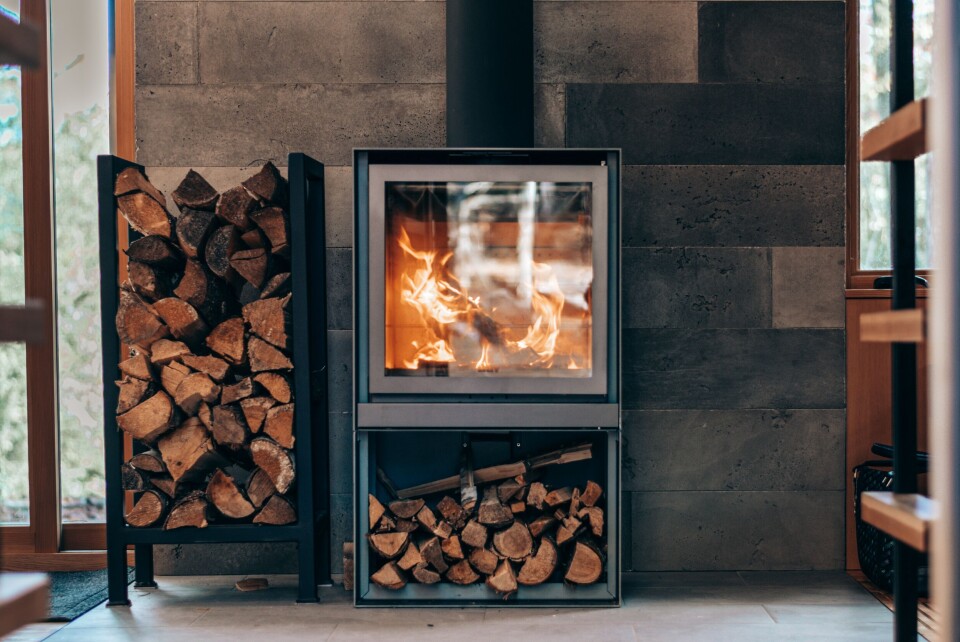-
Record river levels, more evacuations: Latest on flooding in south-west France
Alerts are in place across five departments and residents in some areas are told to stay home
-
French second-home visa issues raised in House of Lords
British people experience an "expensive and bureaucratic process" to continue living in France
-
More than 5,000 French communes use AI to identify poor rubbish sorting
Badly-sorted rubbish can cost millions so communes are turning to high-tech solutions
France plans to boost greener home wood burners with extra grants
A target of a 50% reduction in fine particle carbon emissions by 2030 has been set. Theses emissions account for up to 8% of deaths in heavily polluted areas

France plans to develop domestic wood burners that are “more effective and reduce fine particle carbon emissions by 50%”, said Ecology Minister Barbara Pompili, in a statement today.
Although wood is a carbon-neutral and sustainable fuel, when burned in “incorrect conditions” it can cause significant fine particle pollution.
Domestic wood burners are “the number one source of fine particle emissions”, which are carcinogenic, in France the statement said. In 2018, they were responsible for 43% of particles with a diameter of 2.5 micrometres, and 50% of particles with a diameter of 1 micrometre, nationally.
In areas where wood burners are frequently used, such as the Arve valley in Haute-Savoie, 70% of fine particles are emitted by wood burners in winter.
Figures from Santé publique France (SPF) in 2017 showed that this form of air pollution accounted for 8% of deaths in the area annually, as daily exposure to fine particles can “lead to the development of chronic cardio-vascular, respiratory and neurological illnesses, and cancer”.
MPs have committed to halving emissions of fine particles by 2030 in the most polluted areas of France.
Plan targets burners, fuel, and labelling improvements
When it comes to the amount of particles emitted, the burner itself, the fuel, and how often both are used, all play a role.
As such, the government plan also includes aid for renovations, improving environmental labelling, and developing the use of high-quality fuels.
Since 2015, 600,000 wood-burning heaters have been replaced in France using financial aid from the agency for ecological transition (ADEME).
To help owners know when replacements are needed, heaters will be assessed for current state of repair as part of new diagnostic de performance énergétique (DPE) rules. DPEs are conducted to assess the amount of energy consumed by homes and buildings, often when they are being sold or rented to someone new.
Green flame labels (label flamme verte), which show how environmentally friendly individual heaters are, will also be improved.
Serge Collet, researcher at environmental risk evaluator Ineris, said one issue with the labels was in their testing process.
“The green flame label tests do not reflect how heaters are used by individuals – they are done in reference conditions that are relatively distanced from real life,” he said.
The government also wants to improve wood labelling, to help consumers choose “quality fuels with low humidity rates, with known origins from sustainably managed forests”.
Improvements in wood and pellet markets needed
In France, only 20% of logs sold for fuel are purchased through the formal market, meaning they are bought in supermarkets and stores at fixed prices. The rest are sold or traded informally - between neighbours, for example.
While the government hopes to raise formal market sales to 40%, experts also recommend using pellets, instead of logs, when possible.
Julien Ducrotois, specialist in wood heating at sustainable energy organisation Ageden, said: “If the heater conforms to regulations, wood pellets can help optimise its performance.
“The more that pellet manufacture is normalised, the fewer bad quality pellets we will see. [Meanwhile] the wood industry is much less structured. There are always concerns over how much humidity is in the wood – with over 25% humidity, there is a huge increase in polluting emissions [when the wood is burned].”
Financial aid is also available for people who want to install wood burners that use pellets, rather than logs, as they are more environmentally friendly.
Related stories
Can I get French tax credit for a wood-burning stove?
Why sweeping your chimney matters in France
























